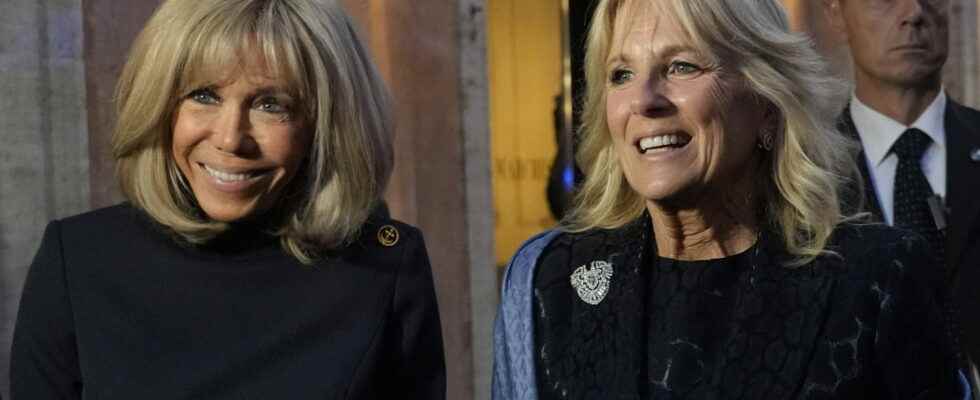The first lady accompanies her husband during the state visit, organized this week by Joe Biden for Emmanuel Macron.
The state visit to which Emmanuel Macron is invited to the United States, from November 29 to December 3, has a symbolic dimension that it would be wrong to underestimate. Obviously, if the heaviness of proprieties and the weight of salamalecs can make you smile, it is fashionable during such a meeting to multiply gestures of complicity, to show that you have reached a level of closeness that is not reserved for all Heads of State. This gives rise to pretty photos that find their place on the chimneys of the main protagonists and give rise to anecdotes that we find years later in their autobiographies. But diplomats also know that the climate created by this type of meeting can lift some taboos in conversations.
A presence to dissolve Gordian knots
A dinner of heads of state, or better – as planned for Wednesday evening – a private dinner between presidential couples, allows subjects to be broached in a more familiar tone. It is now common knowledge that Emmanuel Macron, who is said to be very fond of this kind of meeting, likes to convince his audience in more informal settings. He can probably count on his wife Brigitte to help him on this register. Excluding working groups. The French First Lady is invited to the table of the two presidents, like the wife of Joe Biden, Jill. It is customary for the spouses of Heads of State to also have a time for discussion. Its presence is therefore not a coquetry of protocol: what is played out in informality can participate in dissolving Gordian knots.
The French president, accompanied by a delegation of major economic players, will have a lot to do to try to influence certain American positions on decisive issues: France, very hostile to the Inflation Reduction Act (IRA), which gigantic investments for the energy transition, in a very protectionist way, wants to find a way to preserve part of French exports. Emmanuel Macron also wishes to insist on the need for a rapprochement of French and American positions on issues where dissonance is now manifest: economic competition with China, the management of the war in Ukraine in particular. The question of ecological transition should also lead the two presidents to discuss their differences, as well as the contribution of rich countries to developing countries. Conversations that are approached very differently after having joked around a glass of Bordeaux, than in a corridor of the G20.
